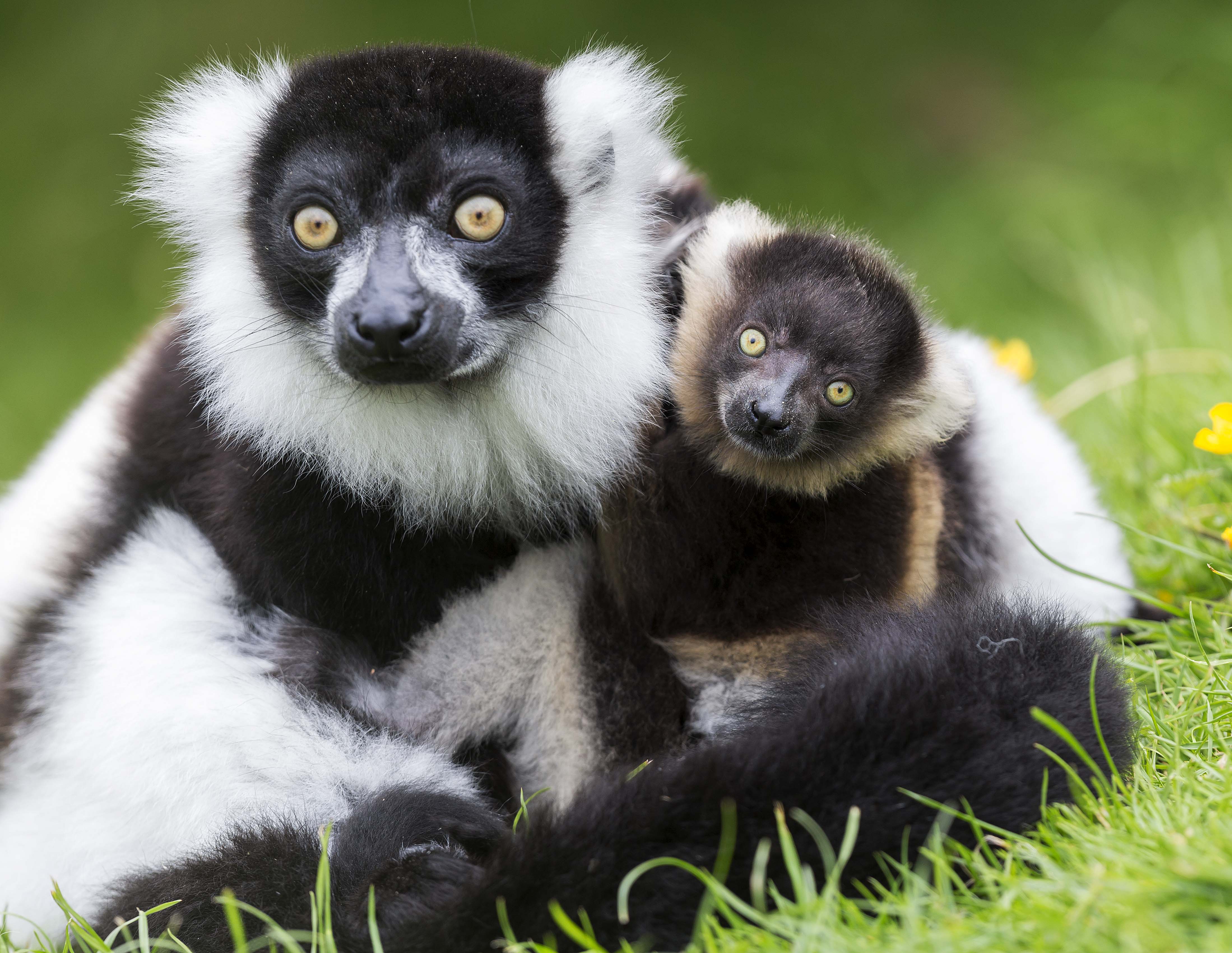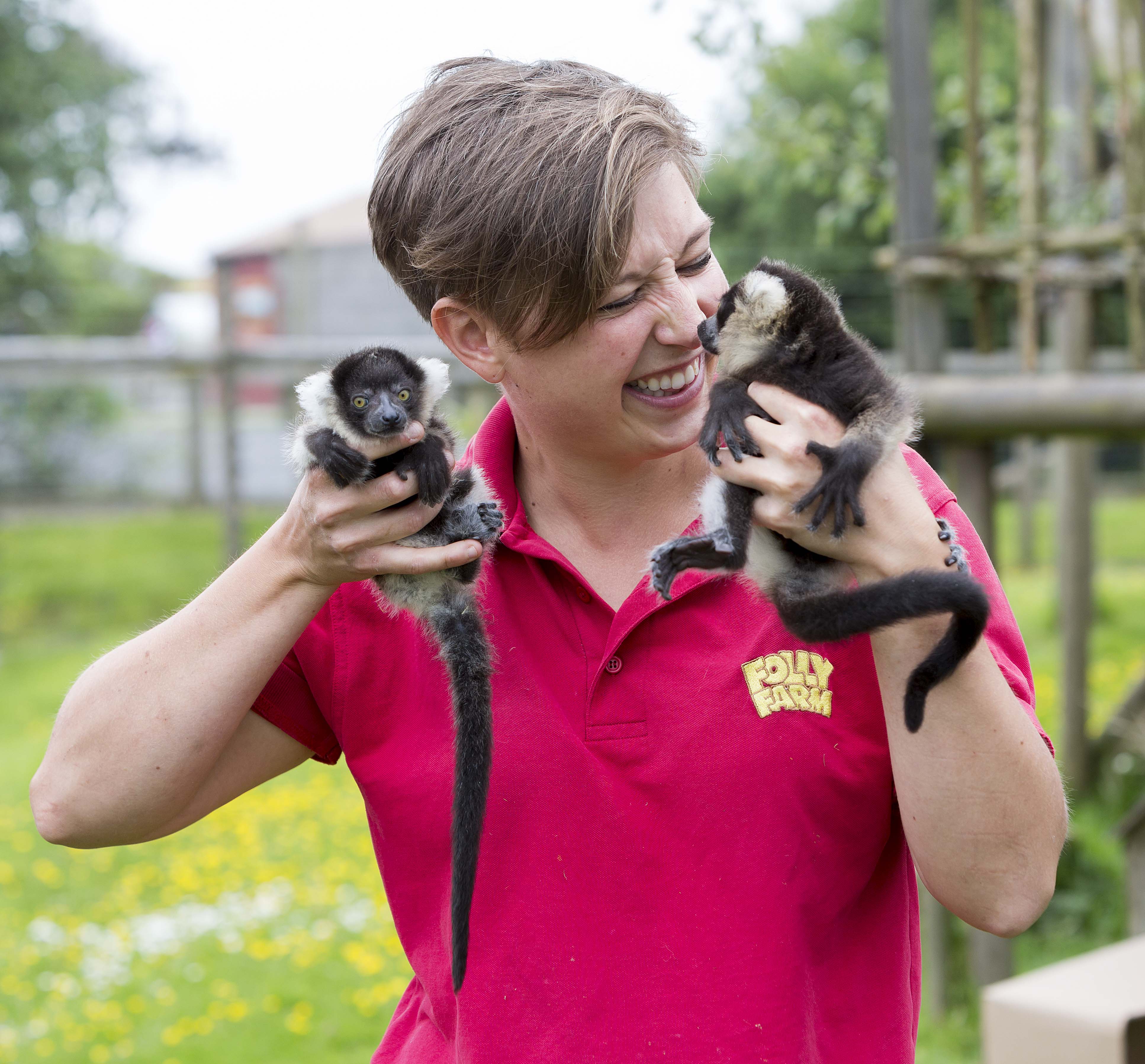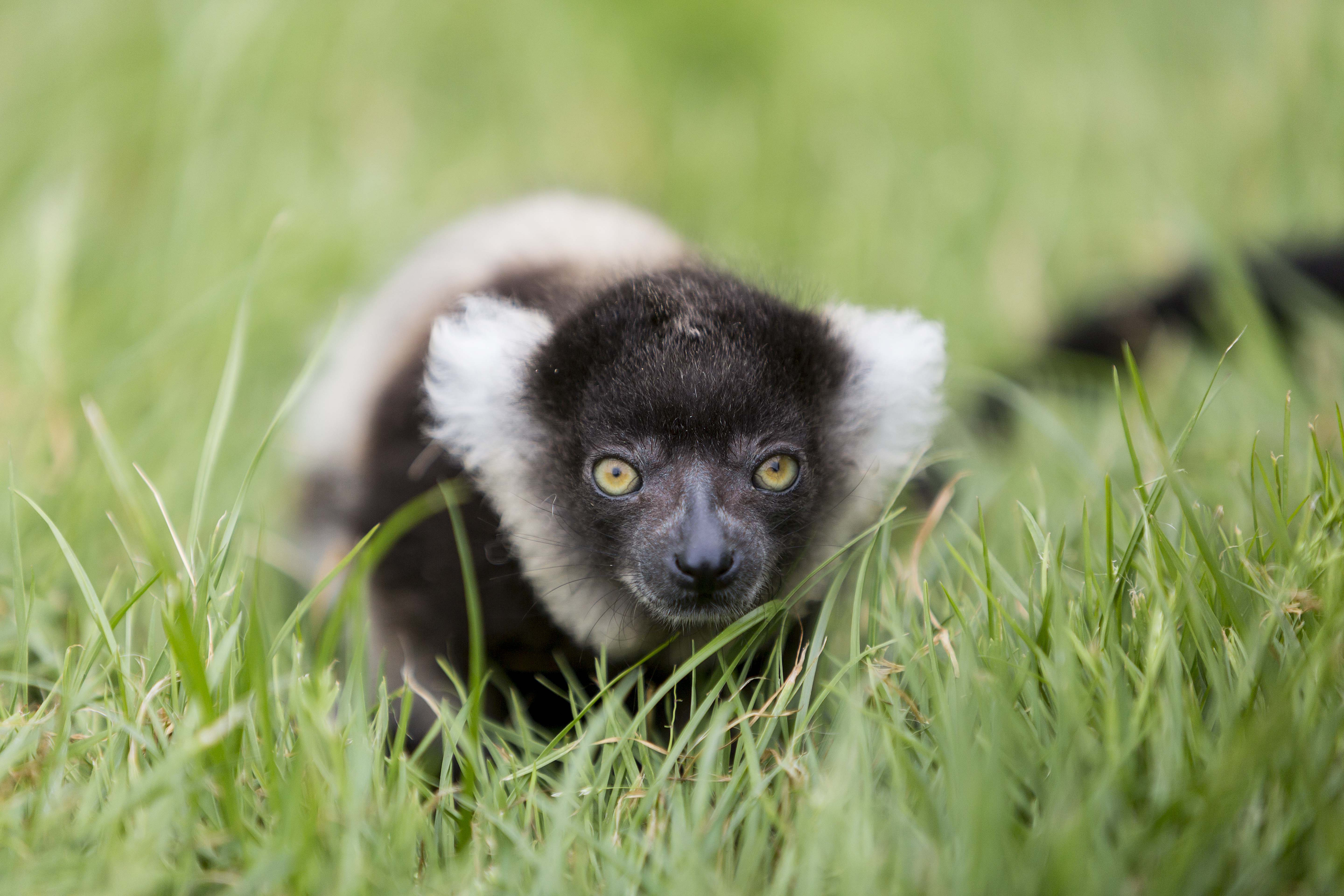Double the trouble as twin lemurs join the gang
We’ve welcomed twin black and white ruffed lemurs and, continuing our Harry Potter naming theme, they’re called Vernon and Dudley!
Watch them climbing all over poor mum!
[InsertVideo video=https://www.youtube.com/embed/s1dVF_hYZeo?rel=0 fullscreen=true]
The month-old brothers were born to mum Kirindi, 18 years old, who came to Folly Farm in 2003 from Drusillas Park in Sussex, and dad Leonardo, 17 years old who came from Paradise Wildlife Park in Hertfordshire in 2002.

The lemurs got together as soon as Kirindi arrived and they already have five children Harry, Ron and Neville born at Folly Farm in 2004, and George and Hermione born four years later.
Rosie Griffin, senior zoo supervisor and primate keeper at Folly Farm, said:
[Pullout] “All living together, the lemurs are such a happy family, and you can tell Kirindi and Leonardo are still very much in love.
“Kirindi is besotted with the two new additions to the family, as her last babies are now 10 years old. Leonardo is less interested at the moment but does pop over to check in every once in a while.
“Black and white ruffed lemurs are the only species of lemurs to make nests, so we suspected Kirindi was expecting, when she started collecting leaves and making a nest up high on a shelf a few weeks ago.
“Kirindi will feed the twins for around four months, so her job at the moment is to cuddle up with the new-borns and make sure she has as much fruit and veg as possible to keep her energy levels up.
“We’re giving her lots of treats, like raisins and fruit and we’re even delivering the new mum breakfast in bed.” [/Pullout]
The gestation period for black and white ruffed lemurs is around three months and the lemurs weighed around 100 grams when they were first born, with lots of fluffy fur. They are pretty helpless at the start of their life but grow up fast, and within six weeks, are clinging on to mum.

The birth of Vernon and Dudley is a significant step for the zoo in helping to grow the community of endangered black and white ruffed lemurs now in captivity.
The species, classified as critically endangered in 2000, primarily only inhabit the island of Madagascar in the wild. Due to their large size and apparent need for tall primary forest, the black and white ruffed is susceptible to human encroachment and habitat loss. The conservation of these animals is therefore extremely important and their on-going existence in captivity is reliant on effective breeding programmes in zoos across the world.
Rosie continued:
[Pullout] “Vernon is slightly more curious and outgoing, and Dudley is a bit more of a mummy’s boy, but that might change as soon as they are off playing with their brothers and sisters.
“As keepers, it’s great for us to see Kirindi and Leonardo continue to keep having babies as it shows us they are really content and happy here at Folly.” [/Pullout]
